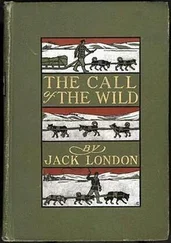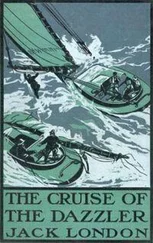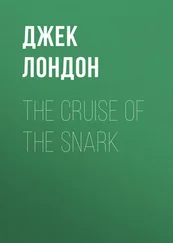Jack London - The Cruise of the Snark
Здесь есть возможность читать онлайн «Jack London - The Cruise of the Snark» весь текст электронной книги совершенно бесплатно (целиком полную версию без сокращений). В некоторых случаях можно слушать аудио, скачать через торрент в формате fb2 и присутствует краткое содержание. Жанр: Классическая проза, Морские приключения, на английском языке. Описание произведения, (предисловие) а так же отзывы посетителей доступны на портале библиотеки ЛибКат.
- Название:The Cruise of the Snark
- Автор:
- Жанр:
- Год:неизвестен
- ISBN:нет данных
- Рейтинг книги:3 / 5. Голосов: 1
-
Избранное:Добавить в избранное
- Отзывы:
-
Ваша оценка:
- 60
- 1
- 2
- 3
- 4
- 5
The Cruise of the Snark: краткое содержание, описание и аннотация
Предлагаем к чтению аннотацию, описание, краткое содержание или предисловие (зависит от того, что написал сам автор книги «The Cruise of the Snark»). Если вы не нашли необходимую информацию о книге — напишите в комментариях, мы постараемся отыскать её.
The Cruise of the Snark — читать онлайн бесплатно полную книгу (весь текст) целиком
Ниже представлен текст книги, разбитый по страницам. Система сохранения места последней прочитанной страницы, позволяет с удобством читать онлайн бесплатно книгу «The Cruise of the Snark», без необходимости каждый раз заново искать на чём Вы остановились. Поставьте закладку, и сможете в любой момент перейти на страницу, на которой закончили чтение.
Интервал:
Закладка:
Ho-o-u-mi is a small valley, separated from Typee by a low ridge, and thither we started when we had knocked our indomitable and insatiable riding-animals into submission. As it was, Warren's mount, after a mile run, selected the most dangerous part of the trail for an exhibition that kept us all on the anxious seat for fully five minutes. We rode by the mouth of Typee valley and gazed down upon the beach from which Melville escaped. There was where the whale-boat lay on its oars close in to the surf; and there was where Karakoee, the taboo Kanaka, stood in the water and trafficked for the sailor's life. There, surely, was where Melville gave Fayaway the parting embrace ere he dashed for the boat. And there was the point of land from which Mehevi and Mow-mow and their following swam off to intercept the boat, only to have their wrists gashed by sheath-knives when they laid hold of the gunwale, though it was reserved for Mow-mow to receive the boat-hook full in the throat from Melville's hands.
We rode on to Ho-o-u-mi. So closely was Melville guarded that he never dreamed of the existence of this valley, though he must continually have met its inhabitants, for they belonged to Typee. We rode through the same abandoned pae-paes, but as we neared the sea we found a profusion of cocoanuts, breadfruit trees and taro patches, and fully a dozen grass dwellings. In one of these we arranged to pass the night, and preparations were immediately put on foot for a feast. A young pig was promptly despatched, and while he was being roasted among hot stones, and while chickens were stewing in cocoanut milk, I persuaded one of the cooks to climb an unusually tall cocoanut palm. The cluster of nuts at the top was fully one hundred and twenty-five feet from the ground, but that native strode up to the tree, seized it in both hands, jack-knived at the waist so that the soles of his feet rested flatly against the trunk, and then he walked right straight up without stopping. There were no notches in the tree. He had no ropes to help him. He merely walked up the tree, one hundred and twenty-five feet in the air, and cast down the nuts from the summit. Not every man there had the physical stamina for such a feat, or the lungs, rather, for most of them were coughing their lives away. Some of the women kept up a ceaseless moaning and groaning, so badly were their lungs wasted. Very few of either sex were full-blooded Marquesans. They were mostly half- breeds and three-quarter-breeds of French, English, Danish, and Chinese extraction. At the best, these infusions of fresh blood merely delayed the passing, and the results led one to wonder whether it was worth while.
The feast was served on a broad pae-pae, the rear portion of which was occupied by the house in which we were to sleep. The first course was raw fish and poi-poi, the latter sharp and more acrid of taste than the poi of Hawaii, which is made from taro. The poi-poi of the Marquesas is made from breadfruit. The ripe fruit, after the core is removed, is placed in a calabash and pounded with a stone pestle into a stiff, sticky paste. In this stage of the process, wrapped in leaves, it can be buried in the ground, where it will keep for years. Before it can be eaten, however, further processes are necessary. A leaf-covered package is placed among hot stones, like the pig, and thoroughly baked. After that it is mixed with cold water and thinned out—not thin enough to run, but thin enough to be eaten by sticking one's first and second fingers into it. On close acquaintance it proves a pleasant and most healthful food. And breadfruit, ripe and well boiled or roasted! It is delicious. Breadfruit and taro are kingly vegetables, the pair of them, though the former is patently a misnomer and more resembles a sweet potato than anything else, though it is not mealy like a sweet potato, nor is it so sweet.
The feast ended, we watched the moon rise over Typee. The air was like balm, faintly scented with the breath of flowers. It was a magic night, deathly still, without the slightest breeze to stir the foliage; and one caught one's breath and felt the pang that is almost hurt, so exquisite was the beauty of it. Faint and far could be heard the thin thunder of the surf upon the beach. There were no beds; and we drowsed and slept wherever we thought the floor softest. Near by, a woman panted and moaned in her sleep, and all about us the dying islanders coughed in the night.
CHAPTER XI—THE NATURE MAN
I first met him on Market Street in San Francisco. It was a wet and drizzly afternoon, and he was striding along, clad solely in a pair of abbreviated knee-trousers and an abbreviated shirt, his bare feet going slick-slick through the pavement-slush. At his heels trooped a score of excited gamins. Every head—and there were thousands— turned to glance curiously at him as he went by. And I turned, too. Never had I seen such lovely sunburn. He was all sunburn, of the sort a blond takes on when his skin does not peel. His long yellow hair was burnt, so was his beard, which sprang from a soil unploughed by any razor. He was a tawny man, a golden-tawny man, all glowing and radiant with the sun. Another prophet, thought I, come up to town with a message that will save the world.
A few weeks later I was with some friends in their bungalow in the Piedmont hills overlooking San Francisco Bay. "We've got him, we've got him," they barked. "We caught him up a tree; but he's all right now, he'll feed from the hand. Come on and see him." So I accompanied them up a dizzy hill, and in a rickety shack in the midst of a eucalyptus grove found my sunburned prophet of the city pavements.
He hastened to meet us, arriving in the whirl and blur of a handspring. He did not shake hands with us; instead, his greeting took the form of stunts. He turned more handsprings. He twisted his body sinuously, like a snake, until, having sufficiently limbered up, he bent from the hips, and, with legs straight and knees touching, beat a tattoo on the ground with the palms of his hands. He whirligigged and pirouetted, dancing and cavorting round like an inebriated ape. All the sun-warmth of his ardent life beamed in his face. I am so happy, was the song without words he sang.
He sang it all evening, ringing the changes on it with an endless variety of stunts. "A fool! a fool! I met a fool in the forest!" thought I, and a worthy fool he proved. Between handsprings and whirligigs he delivered his message that would save the world. It was twofold. First, let suffering humanity strip off its clothing and run wild in the mountains and valleys; and, second, let the very miserable world adopt phonetic spelling. I caught a glimpse of the great social problems being settled by the city populations swarming naked over the landscape, to the popping of shot-guns, the barking of ranch-dogs, and countless assaults with pitchforks wielded by irate farmers.
The years passed, and, one sunny morning, the Snark poked her nose into a narrow opening in a reef that smoked with the crashing impact of the trade-wind swell, and beat slowly up Papeete harbour. Coming off to us was a boat, flying a yellow flag. We knew it contained the port doctor. But quite a distance off, in its wake, was a tiny out rigger canoe that puzzled us. It was flying a red flag. I studied it through the glasses, fearing that it marked some hidden danger to navigation, some recent wreck or some buoy or beacon that had been swept away. Then the doctor came on board. After he had examined the state of our health and been assured that we had no live rats hidden away in the Snark, I asked him the meaning of the red flag. "Oh, that is Darling," was the answer.
And then Darling, Ernest Darling flying the red flag that is indicative of the brotherhood of man, hailed us. "Hello, Jack!" he called. "Hello, Charmian! He paddled swiftly nearer, and I saw that he was the tawny prophet of the Piedmont hills. He came over the side, a sun-god clad in a scarlet loin-cloth, with presents of Arcady and greeting in both his hands—a bottle of golden honey and a leaf-basket filled WITH great golden mangoes, golden bananas specked with freckles of deeper gold, golden pine-apples and golden limes, and juicy oranges minted from the same precious ore of sun and soil. And in this fashion under the southern sky, I met once more Darling, the Nature Man.
Читать дальшеИнтервал:
Закладка:
Похожие книги на «The Cruise of the Snark»
Представляем Вашему вниманию похожие книги на «The Cruise of the Snark» списком для выбора. Мы отобрали схожую по названию и смыслу литературу в надежде предоставить читателям больше вариантов отыскать новые, интересные, ещё непрочитанные произведения.
Обсуждение, отзывы о книге «The Cruise of the Snark» и просто собственные мнения читателей. Оставьте ваши комментарии, напишите, что Вы думаете о произведении, его смысле или главных героях. Укажите что конкретно понравилось, а что нет, и почему Вы так считаете.







